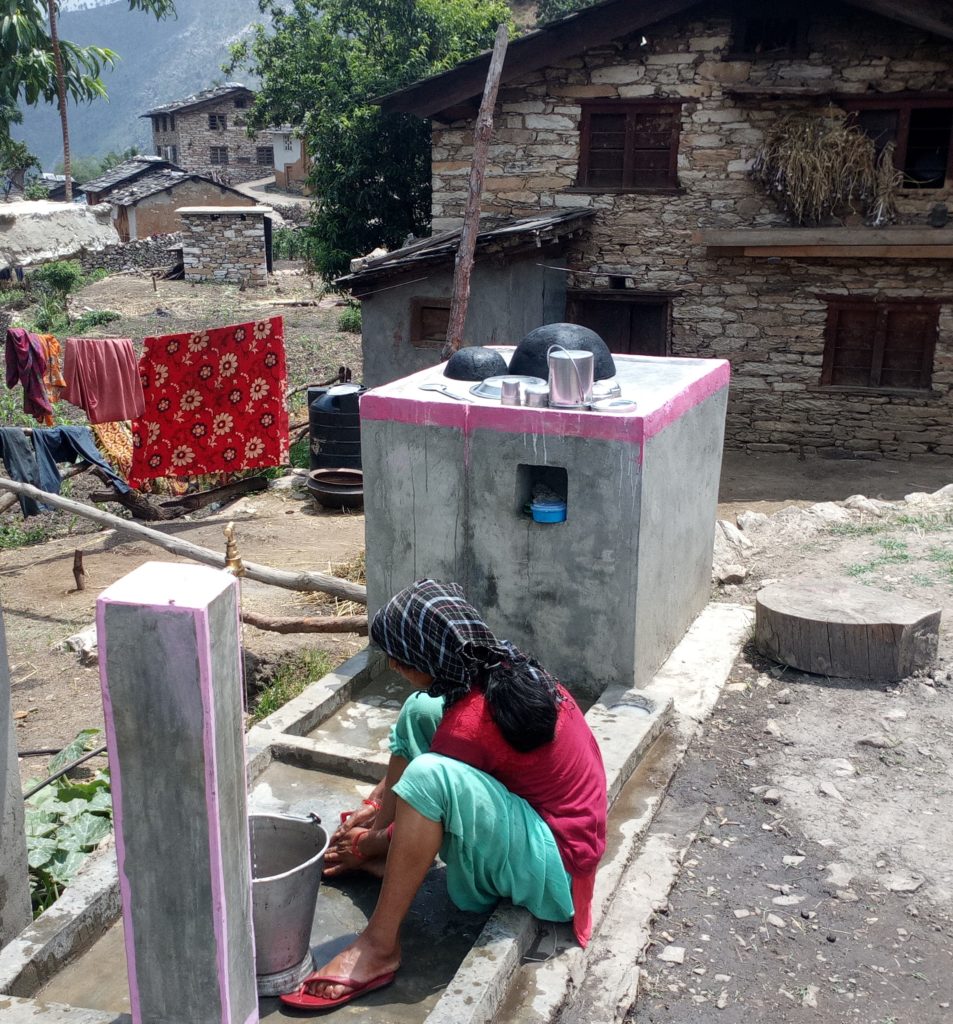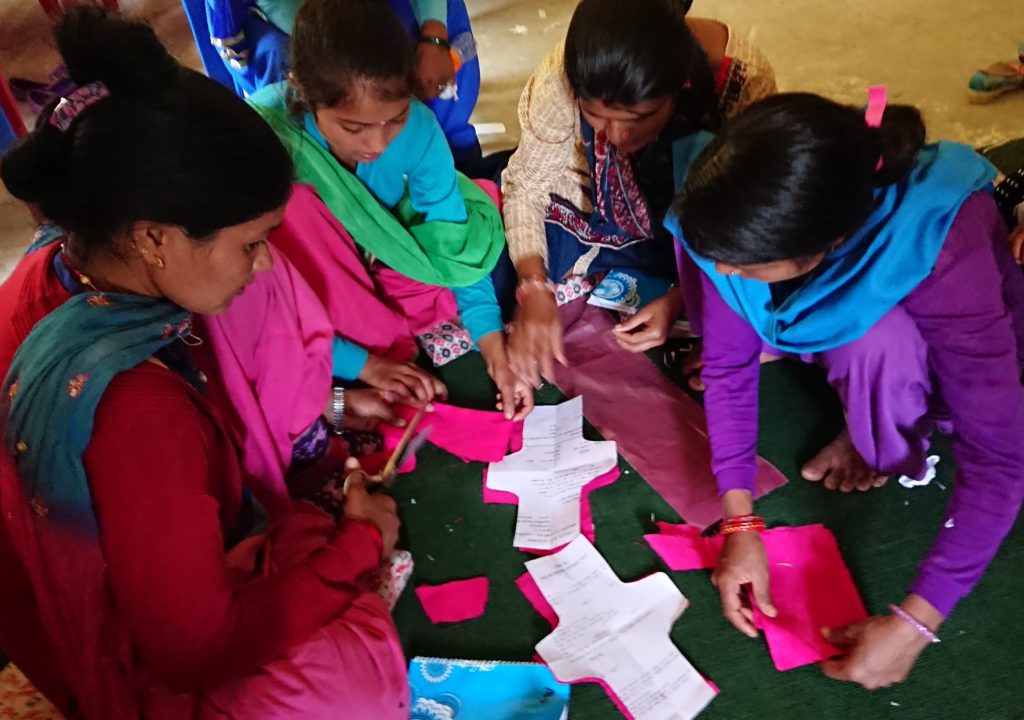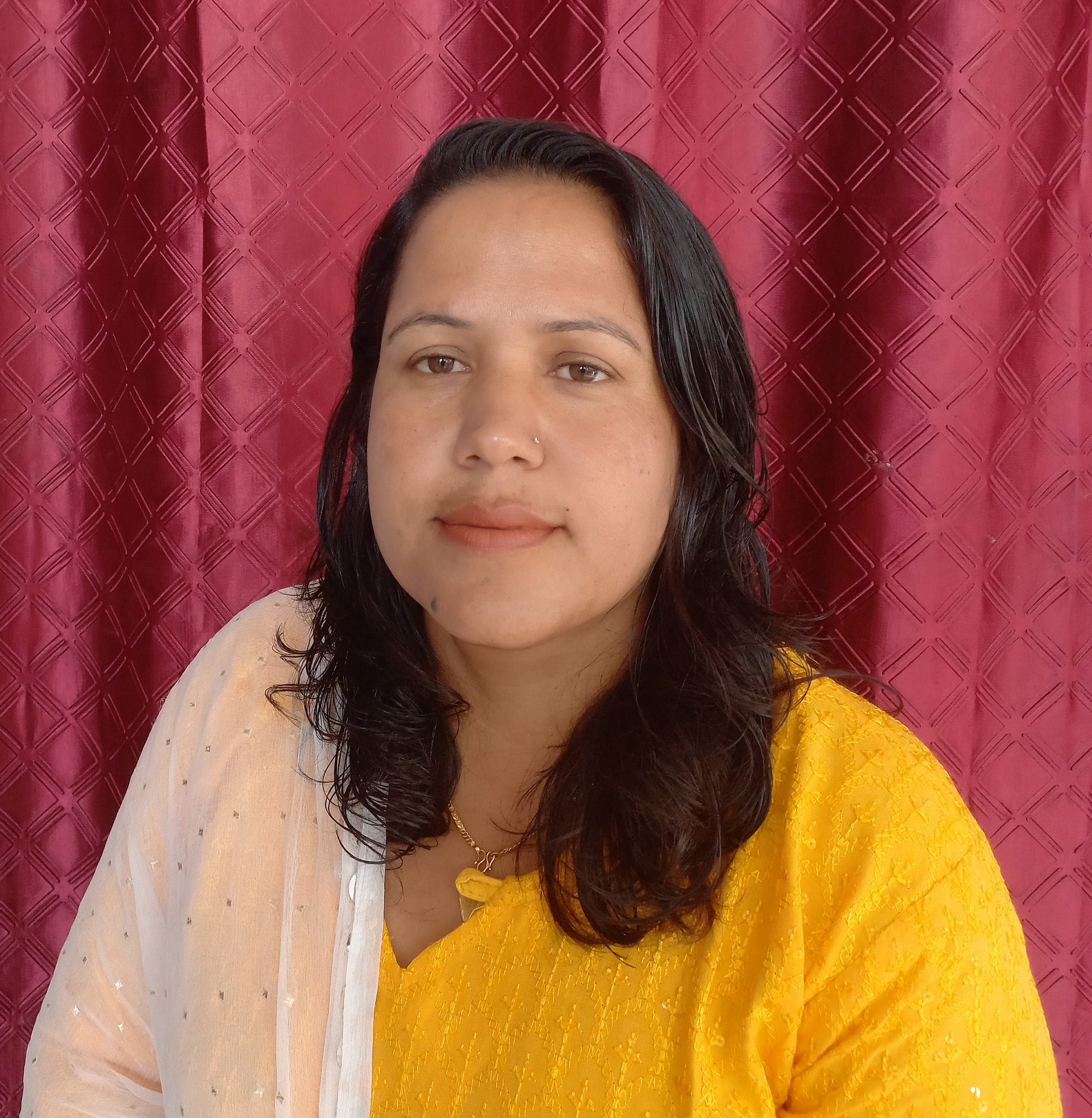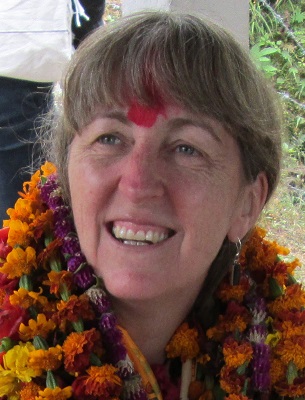In remote areas of Sudurpaschim and Karnali, Nepal, long traditions of taboos and discrimination mean that menstruating women are considered impure. This has traditionally meant that they can’t use the toilet or tap and must separate themselves from family members (meaning they often sleep outside the house in cow sheds or ‘chhaupadi huts’, can’t attend school, community meetings, etc.), have a restricted diet, and suffer many other discriminatory practices. In particular, the restrictions on household toilet use negatively impacts on total sanitation work, and has been one of the most difficult traditions to change.
The Rural Village Water Resources Management Project (RVWRMP) has been promoting water supply, sanitation and hygiene activities since 2006 (financed by the Governments of Finland and Nepal, and the European Union). This includes Menstrual Hygiene Management (MHM) and behaviour change activities at school and community level, and support for Dignified Menstruation Management (DMM) under the auspices of local governments.
As an example, similar to much of the region, Apihimal rural municipality is located in a cold and mountainous area of the Himalayas, that can only be reached by a long walk. Until quite recently toilets were rare and open defaecation was common. Women and girls walked long distances to access water from temporary water supply or traditional water sources for drinking and household use. They also suffered from health problems and safety risks due to the menstruation taboos.
Despite our efforts, standard training and awareness-raising by projects and the Government was only slowly changing these long-held menstruation taboos. Even though municipalities were declared ‘Open Defaecation Free’, in practice menstruating women usually had to continue going outside for urination and defaecation as their families wouldn’t allow them to touch the toilet or tap. However, RVWRMP has had some recent successes with new approaches in its work with local communities:
Ensuring adequate water supply in the yard seems to overcome barriers
Private tap connections (rather than public, shared taps). Constructing taps within the yard of each house has dramatically reduced discrimination within the community and family. We find women are able to wash in their own yard and use the toilet without restrictions from their family. As the community are aiming to achieve ‘Total Sanitation’, they have made a rule for all that everyone must use the toilet at all times, or risk a fine. Private meters also mean more sustainable water use. Other projects are following this practice also now.
Menstruation behaviours have changed fundamentally as a result of private tap connection systems, alongside the training. Some beliefs remain but they don’t interfere with women’s rights. All women are using the tap and sleeping in safe places, and they are allowed to drink milk and curd during menstruation.

Reusable sanitary pads improve personal hygiene and comfort but also the environment
Reusable pad making workshops to improve MHM without adding to environmental waste problems. RVWRMP has conducted many trainings in menstrual hygiene management, and this has built a demand for sanitary pads. The next step was training for tailors and other community members in making reusable pad. Almost all the training participants are now using reusable cloth pads themselves (replacing the unhygienic and uncomfortable old rags used earlier), and the tailors have started sewing cloth pads for sale. This is important, as there are no means of solid waste disposal at village level, other than burning. Consequently, there are increasing problems with soiled commercial sanitary pads disposed in rivers or the roadside (which is likely to have negative feedback impact on all menstruating women). Making simple, reusable pads from locally available materials reduces the problems and improves menstrual hygiene.

Building solidarity across generations
Cross-generational workshops (mother-in-law – daughter-in-law / Sasu-Buhari) are no panacea, but they are valuable for building solidarity and behaviour change. The older generation of women typically faced the worst of the menstruation taboos when they were young, however they often haven’t tried to change the practices. Rather, they have tended to be enforcers of the traditions (a little like with Female Genital Mutilation in other countries). By bringing the generations together to discuss the challenges they face, the project has tried to help both parties in a sometimes-difficult relationship understand each other and build a sense of solidarity. RVWRMP has helped all family members to understand that a healthier and better educated life for girls and women is good for the whole family. If women teach family members to think positively about menstruation, it is possible to change attitudes and understand that menstruation is a natural process.
Breaking menstruation myths
Setting mandatory quotas of 50% for women in key positions in water committees and as technical staff (such as Village Maintenance Workers, Improved Cooking Stove Mechanics and Livelihood Resource Persons) has been key to reduce the myths of menstruation behaviours. In earlier years, there were very few women leaders or technicians working in scheme areas due to beliefs about untouchability during menstruation. How could menstruating women touch water taps, enter kitchens or participate in meetings? Those trailblazer women proved to the community that menstruation myths are untrue, and now there are increasing numbers of women volunteering to take up leadership and technician roles. In addition, women are now freer to go to work outside their home and can advocate for menstruation hygiene management.
Ongoing Challenges – Working in remote areas brings challenges of accessibility to sanitary materials and access; and some traditional mindsets and cultural beliefs are hard to break. Therefore, progress is up and down still – not all people, and older ones in particular, are happy with changing attitudes towards menstruating women. However, those women making changes are not prepared to go backwards.
Local government taking over
Dignified Menstruation Management directives – Changing local attitudes shouldn’t be the work of outsiders alone – projects and NGOs won’t last forever and local ownership matters for sustainability. RVWRMP is working with rural municipalities to institutionalise dignified menstruation management in the work of the local government, with policy, action plans and budget. This includes workshops, employment of facilitators, setting local regulations, etc. Local government is enthusiastic and has committed to change.
Find out more at Rural Village Water Resources Management Project (RVWRMP)






